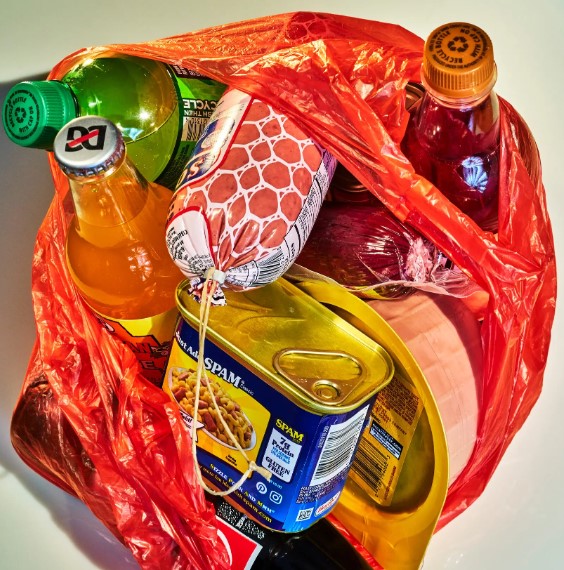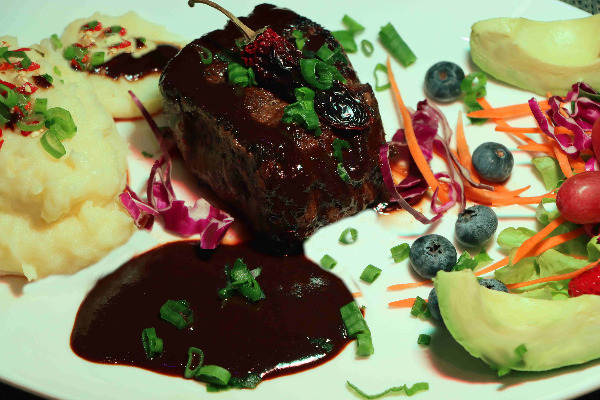Some ultraprocessed foods are worse than others? Which ones pose the biggest threats to your health
By Alice Callahan
Name a common condition — heart disease, Type 2 diabetes, cancer, dementia, irritable bowel syndrome — and chances  are good that following a diet high in ultraprocessed foods has been linked to it.
are good that following a diet high in ultraprocessed foods has been linked to it.
But the ultraprocessed food category is large and wide-ranging. It makes up an estimated 73 percent of the U.S. food supply, and contains stereotypically “unhealthy” products like sodas, candies and hot dogs as well as seemingly “healthy” ones like whole grain breads, breakfast cereals, flavored yogurts and plant milks.
It’s a “hodgepodge of foods,” some of which are likely more harmful than others, said Josiemer Mattei, an associate professor of nutrition at the Harvard T.H. Chan School of Public Health.
On Monday, Dr. Mattei and her colleagues published one of the largest and longest studies on ultraprocessed foods and heart health to date. In it, they analyzed the risks of consuming these foods, and teased out the worst offenders.
 An Overall Risk of Ultraprocessed Foods
An Overall Risk of Ultraprocessed Foods
The new study, published in a Lancet journal, included more than 200,000 adults in the United States. They filled out detailed diet questionnaires beginning in the 1980s and early 1990s, and completed them again every two to four years for about 30 years. Most of the participants in the study were white and worked as health professionals. The researchers looked at how the participants’ ultraprocessed food consumption related to their chances of developing cardiovascular disease.
After adjusting for risk factors like smoking, family health history, sleep and exercise, the researchers found that those who consumed the most ultraprocessed foods were 11 percent more likely to develop cardiovascular disease and 16 percent more likely to develop coronary heart disease during the study period, compared with those who consumed the least ultraprocessed foods. The highest consumers also had a slightly, but not significantly, elevated risk of stroke.
The researchers also combined their findings with those from 19 other studies, for a separate analysis of about 1.25 million adults. They found that those who consumed the most ultraprocessed foods were 17 percent more likely to develop cardiovascular disease, 23 percent more likely to develop coronary heart disease and 9 percent more likely to have a stroke compared with the lowest consumers.
The study’s size and the regular checks on participants’ diets made it “one of the most robust studies” of this question, said Niyati Parekh, a professor of public health nutrition at New York University.
But it had some limitations that are common with these types of nutrition studies, she said. The diet questionnaires were not designed to capture how foods were processed, so the researchers had to determine which were likely to be ultraprocessed after the fact. The nutrients and ingredients in some foods, such as breakfast cereals, may also have changed over the decades since the study began, she added, making their results less applicable to the foods we consume today.
And because the study participants were mainly white and well-educated about health, she said, the findings may not represent the risk to everyone.
These types of studies can’t prove cause and effect; they can only show that eating ultraprocessed foods is associated with health risks, Dr. Mattei said. But what is striking, she added, is how consistently research from around the world has linked ultraprocessed food consumption to poor health.
Teasing the “Good Guys” from the “Bad Guys”
The researchers also analyzed whether certain types of ultraprocessed foods were more associated with cardiovascular disease than others.
Of the 10 ultraprocessed food categories they looked at, two were clearly associated with greater risk: sugar-sweetened drinks (like soda and fruit punch) and processed meat, poultry and fish (like bacon, hot dogs, breaded fish products, chicken sausages and salami sandwiches).
When these two categories were excluded from the data, most of the risk associated with ultraprocessed food consumption disappeared, said Kenny Mendoza, a postdoctoral researcher at the Harvard T.H. Chan School of Public Health, who led the analysis.
Some types of ultraprocessed foods, on the other hand, were associated with reduced risks for cardiovascular disease. These included breakfast cereals; sweetened and flavored yogurts, frozen yogurts and ice cream; and savory snacks like packaged popcorn and crackers.
These results track with previous studies, which have also suggested that processed meats and sweet drinks are the most harmful types of ultraprocessed foods. And some past research has found that breads, cereals and yogurts are associated with no risk or reduced risk, said Maya Vadiveloo, an associate professor of nutrition at the University of Rhode Island.
The differences between the “good guys” and the “bad guys” may come down to how they’re processed and what they offer nutritionally, Dr. Mendoza said.
Processed meats, for example, tend to be high in sodium and saturated fats, and sodas and other sweet drinks are often high in sugar. Whereas whole grain cereals and breads, even those that are ultraprocessed, can provide valuable nutrients such as fiber, minerals and B vitamins, Dr. Mendoza said.
Dr. Mattei likened scientists’ current understanding of ultraprocessed foods to their knowledge of fats several decades ago. It took time, she said, to figure out which types of fats were harmful and which were not. This study and future research may help to untangle those same questions with ultraprocessed foods, she added.
What’s the takeaway?
Looking at the evidence on ultraprocessed foods, there are some things experts agree on.
First, you can’t go wrong with consuming mostly unprocessed or minimally processed foods, like fruits, vegetables, legumes, nuts and whole grains, Dr. Vadiveloo said. It’s clear that eating more of these foods and fewer ultraprocessed versions is associated with better health.
Second, processed meats and sugary drinks have consistently been linked to poor health, Dr. Mattei said, so reducing or eliminating those foods from your diet should be a priority.
That isn’t to say that processed meats and sodas are the only harmful ultraprocessed foods, or that it’s safe to consume as much of the others as you’d like, said Mathilde Touvier, director of the nutritional epidemiology team at the National Institute of Health and Medical Research in France.
Research from her group has linked certain additives in many ultraprocessed foods, like artificial sweeteners, preservatives and emulsifiers, with conditions like cancer and Type 2 diabetes. We need more research, she said, on how these and other ingredients may affect health.
But for now, whether a food is ultraprocessed should not be the only “barometer” of how healthy it is, Dr. Vadiveloo said.
______________
Credit: New York Times
















